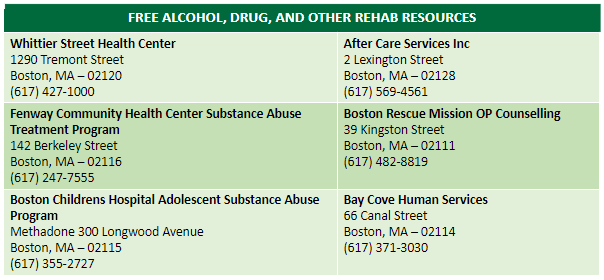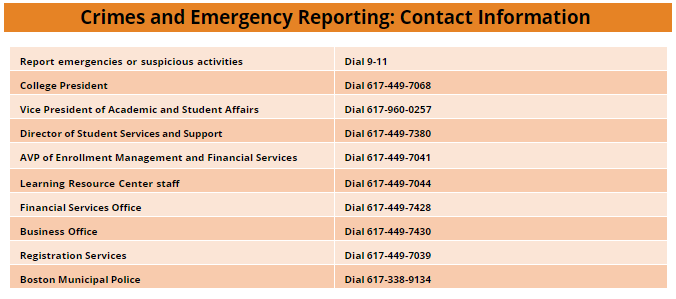Contact Us
Table of Contents:
HISTORY, MISSION, AND VISION
NON-DISCRIMINATION STATEMENT
STUDENTS RIGHTS AND RESPONSIBILITIES
STUDENT DISCIPLINARY AND GRIEVANCE POLICIES AND PROCEDURE
POLICIES AND PROCEDURES
COLLEGE SERVICES AND RESOURCES
CAMPUS DIRECTORY
Policies and Procedures
Alcohol and Drug Policy
UCB strives to achieve a healthy living, learning, and working environment. As part of this commitment and pursuant to the Federal Drug Free Workplace Act of 1988 and the Drug Free Schools and Community Act Amendments of 1989. The College also complies with all local, state, and federal regulations pertaining to alcohol and illicit drugs. The unlawful manufacture, dispensing, possession, use or distribution of alcohol or illicit drugs by students or employees on UCB’s property is prohibited.
All members of the UCB community are responsible for knowing and acting in accordance with the applicable laws and college policy concerning the purchase, possession, consumption, and sale of alcoholic beverages.
UCB will continue to distribute materials to students and provide educational workshops/training as a means of prevention. Student Affairs personnel can provide referrals to other agencies and organizations for individuals experiencing or affected by persons with substance abuse issues.
Drug-Free Policy
UCB strives to achieve a healthy living, learning, and working environment. As part of this commitment and pursuant to the Federal Drug Free Workplace Act of 1988 and the Drug Free Schools and Community Act Amendments of 1989,. Urban College of Boston uses multiple strategies to provide comprehensive education regarding alcohol and other drugs.
Legal Sanctions for Unlawful Possession of Alcohol and Drugs
Violation of the alcohol and drugs policy will result in actions ranging from mandated participation in drug counselling and rehabilitation programs, to dismissal.
Drug Related Crimes and Federal Financial Services
In addition to these provisions, the Higher Education Amendments of 1998 included a new student eligibility provision. It provides that, effective July 1, 2000, a student is ineligible for federal student aid if convicted, under federal or state law, of any offense involving the possession or sale of a Controlled Substance (generally meaning illegal drugs, but not including alcohol or tobacco). The period of ineligibility begins on the date of the conviction and lasts until the end of the statutorily specified period. The student may regain eligibility early by completing a drug rehabilitation program that meets certain statutory and regulatory requirements (including two unannounced drug tests), or if the conviction is overturned.
Health Risks of Alcohol and Drug Use
The negative physical and mental effects of the use of alcohol and other drugs are well documented. The use of these drugs may cause blackouts, poisoning and overdose, physical and psychological dependence, damage to vital organs, as well as an inability to learn and remember information, and psychological problems. For more information about the health risks associated with the misuse of alcohol and illicit drugs, please visit Alcohol and Drug Policy.
Treatment Resources for Alcohol and Drug Addiction
As required under the Drug-Free Schools and Communities Act of 1989, Urban College of Boston uses multiple strategies to provide comprehensive education regarding alcohol and other drugs. UCB will continue to distribute materials to students and provide educational workshops/training as a means of prevention. Student Affairs personnel can provide referrals to other agencies and organizations for individuals experiencing or affected by persons with substance abuse issues.
Children on Campus
To maintain an environment conducive to learning, children under the age of 14 are not permitted on campus.
Service Animals Policy
Service Animals Policy Under the Americans with Disabilities Act (ADA) a service animal (sometimes called an assistance animal) is defined as, “any guide dog, or other animal individually trained to provide assistance to an individual with a disability”. A service animal is specifically trained to perform tasks related to the person’s disability and is not considered a pet. Both therapy animals and emotional support animals may be part of an individual’s therapy or treatment plan, but unless they have been specifically trained to do work or perform tasks related to an individual’s disability, they are not to be considered service animals and cannot be brought on campus.
All service animals must be registered with UCB’s Student Services and Support Department.
The following policies apply to service animals used on the UCB campus:
All service animals must be licensed in accordance with city and county regulations.
All service animals must be current in their immunizations against diseases specific to the type of animal. Dogs must be vaccinated against rabies, distemper, and parvovirus and other animals must have the appropriate vaccinations that are required for that animal. A licensed veterinarian must certify that the animal has been vaccinated and is healthy and free of any communicable diseases.
The service animal must be always leashed and under control of its handler/partner. The care and supervision of the service animal is solely the responsibility of its handler/partner.
Any service animal that is not in control and that, in the opinion of UCB staff, poses a direct threat to the health or safety of others may be excluded from the UCB campus.
When physically possible, the handler/partner is responsible for cleaning up after their service animal.
Technology Use Policy
Access to the College’s computer systems and networks, including email, imposes certain responsibilities and obligations and is granted subject to college policies, and local, state, and federal laws. Acceptable use is always ethical, reflects academic honesty, and shows restraint in the consumption of shared resources. It demonstrates respect for intellectual property, ownership of data, system security mechanisms, and individual rights to privacy.
All use of the college network and computer resources, including e-mail accounts, may be monitored by the College at any time without notice.
Only current applicants, enrolled students, faculty, staff, and authorized alumni are eligible to access the college’s networks and computers. Individuals may be requested to present student identification or other University authorization.
The college’s network and computers may only be used for the educational-related objectives of the College and not for any other purposes. Unauthorized uses include, but are not limited to, the following:
Use of the College’s network and computer resources to gain unauthorized access to the accounts of other student(s), faculty, or staff or unauthorized access to computers and networks located outside of college.
Use of the College’s network and computer resources, including e-mail, to view, download or distribute obscene, offensive, threatening, harassing, intimidating or otherwise inappropriate material.
Installing, or attempting to install, on any College network and computer resource, viruses, spyware (including password sniffing software), "Trojan horse" programs or other similarly destructive programs.
Use of the College network and computer resources to operate file sharing programs, including downloading of copyrighted materials.
Non-Smoking Policy
Property owned, controlled, or leased by the college, as well as any tobacco- related advertising or sponsorship. The policy applies to products including – but not limited to – cigarettes, cigars, e- cigarettes, vape pens, hookah, and smokeless tobacco. Urban College of Boston (UCB) commits to being a smoke-free and tobacco-free campus to support the health and well-being of the College’s students, faculty, staff, and visitors. Per the Tenant Handbook provided by Colliers International New England, LLC (which manages the China Trade Center – 2 Boylston Street, Boston, MA 02116 – that houses UCB), “China Trade Center is a smoke- free building. Smoking is not permitted in any area of the building. As a smoke free environment, smoking is not permitted within 50 feet of any entranceway into the building.” In addition to maintaining a smoke-free environment, UCB also bans the use of any tobacco products on all
Security Policy
Student safety is of the utmost importance at Urban College and we all must work together to maintain a safe and secure campus community. Students should maintain awareness of campus safety, and immediately report issues and circumstances that may reduce safety and security for our students.
PREPARING THE ANNUAL DISCLOSURE OF CRIME STATISTICS
UCB prepares an annual report to comply with the Jeanne Clery Disclosure of Campus Security Policy and Crime Statistics Act. The report is prepared in cooperation with the local law enforcement agencies surrounding our main campus and alternative learning sites.
The full report shall be accessible online at http://www.urbancollege.edu/Data/Sites/1/2023 Urban College of Boston Annual Security Report. An annual email notification is sent to all enrolled students, faculty, and staff that provides the website to access this report. Copies may also be requested from the Office of Enrolment Services. All prospective employees may obtain a copy from Human Resources and the website address will be attached to UCB employment applications.
REPORTING A CRIME & OTHER EMERGENCIES
Members of the community, including visitors, students, faculty and staff are encouraged to report all crimes and emergencies in a timely manner. The reporting of a crime may occur even if the victim is not able or elects to do so. A crime is considered “reported” when it is brought to the attention of a Campus Security Authority (CSA) or law enforcement by a victim, a witness, another third party, or by the offender. The report must be made to the local public law enforcement entity, on-campus and off-campus, and Campus Security Authorities (CSA). Suspicious activities or individuals seen within the campus vicinity should also be reported to the relevant authorities. Crimes should be reported for the purpose of making timely warning reports to the community and for inclusion in the annual statistical disclosure.
ACCURATE PROMPT REPORTING
Community members, students, faculty, staff, and guests are encouraged to report all crimes and public safety-related incidents to UCB staff in a timely manner. To report a crime or an emergency on the UCB campus, call 9-1-1. To report a non-emergency security or public safety-related matter, call 617-449- 7070. When a potentially dangerous threat to the UCB community arises, timely reports or warnings will be issued through e-mail announcements, the posting of notices at buildings containing UCB classrooms, in-class announcements, or other appropriate means.
TO REPORT A CRIME
Anyone can report a crime or emergency by contacting the local police by dialing 911 or the President at (617) 449-7037. To report any suspicious activity or person seen loitering inside buildings with UCB classrooms, or to report non-emergencies, contact a UCB CSA:
To Report Complaints of Sexual Violence: A victim of sexual violence has the right to file (or not file) an Affirmative Action Discrimination Complaint Form with the College. Contact the College’s Title IX Coordinator, the Director of Student Services and Support, Rosana Perella, Email: Rosana.perella@urbancollege.edu. For Title IX purposes, the Title IX Coordinator will keep information confidential to the full extent permitted by law.
RESPONSE TO A REPORTED CRIME
The Boston Police Department will work with individuals reporting a crime to obtain information and conduct a thorough investigation. When appropriate, crime suspects may be adjudicated through the criminal justice system and/or college.
CAMPUS LAW ENFORCEMENT
The Boston Police Department and/or or respective law enforcement for alternative learning sites have full law enforcement authority, including the authority to effect arrests, on campus at UCB and at alternative learning sites. Their jurisdiction includes all property owned or controlled by the college, as all streets within the city of Boston and all alternative learning sites. The main campus has a municipal building officer on site who is a sworn officer of the Boston Police Department. The Boston Municipal Protective Services are special licensed police officer with full arrest and investigation authority. Although there is no formal memorandum of understanding, UCB maintains a healthy working relationship with the Boston Police Department, as well as other local and state law enforcement and emergency response agencies. UCB personnel attend regular meetings with local law enforcement to exchange ideas and problems which may be of concern for the UCB community.




